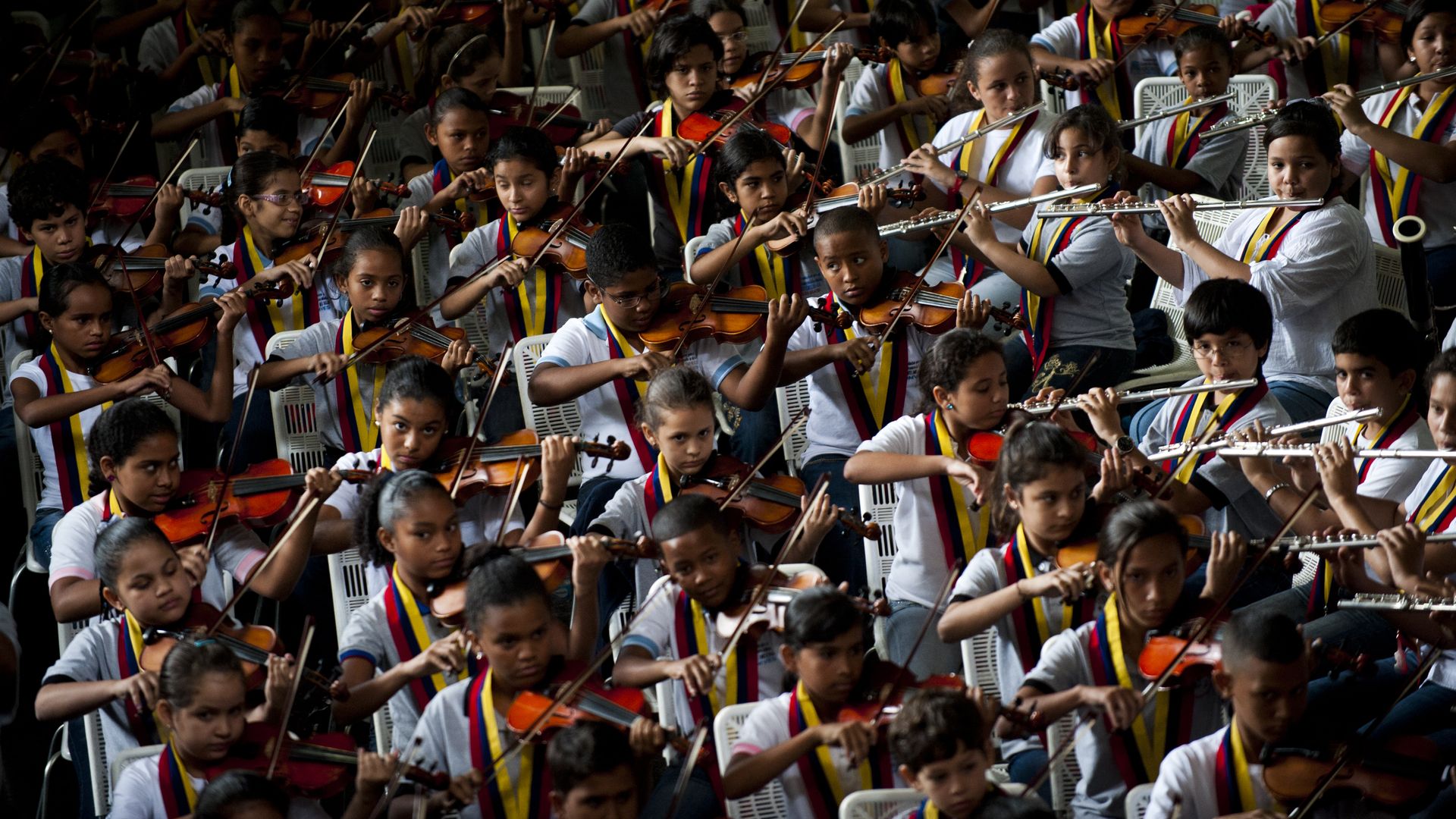Hispanic Heritage: Venezuela's musical legacy
Add Axios as your preferred source to
see more of our stories on Google.

Young Venezuelan musicians of El Sistema's Simon Bolivar Youth Symphonic Orchestra play during a free concert at Teresa Carreño theater in Caracas, Feb. 16, 2012. Photo: Leo Ramirez/AFP via Getty Images
Music is considered an escape for many, but "El Sistema" — the popular name for the National Symphony of Youth and Children's Orchestras — offers any child in Venezuela the possibility of a career in music.
Why it matters: El Sistema is a free classical music education program started in the 1970s to ensure that music would no longer be "a monopoly of elites" but a "right for all the people."
- The program claims it is the most effective social project in Venezuelan history.
- Its founder, José Antonio Abreu, has said that while the program teaches students to love music, becoming a musician is not the ultimate goal for its students. Being in an orchestra teaches young people the importance of working together for a common goal and self-discipline.
- "The culture of merit, effort, perseverance and discipline are being created, all of which are worthy paths that lead to a better Venezuela," Abreu, a government economist turned musical educator, said when accepting the 2001 Swedish alternative Nobel Prize.
Flashback: Abreu created "El Sistema" in 1974 with only 11 children, and he knew that it would be hard to get such a program started in a country that did not pay attention to culture, Venezuelan newspaper "El Universal" writes.
- In 1975, the youth orchestra made its official debut with 80 musicians in a government building.
Of note: The Venezuelan government, led by presidents from center-right to the left, has supported the program since 1979.
- Abreu had received criticism for the program's association with the government of Hugo Chavez, the late Venezuelan president.
- The musician said that he never felt "any pressure of a political character" to take a political stand.
"El Sistema" has been replicated in at least 60 countries around the world in an effort to bring about social change through art.
- The program "uses ensemble music to enable every child to experience being an asset within her or his community," according to Eric Booth, author of "Playing for Their Lives: The Global El Sistema Movement for Social Change Through Music."
- "El Sistema nurtures a powerful intrinsic motivation in learners, which fuels the ambitious work ethic and drives learners to deep commitment, to values and practices that change their lives over time," Booth said.
By the numbers: At least 800,000 children that have passed through "El Sistema" in Venezuela, Abreu told CBS's 60 Minutes in 2008.
Don't forget: Conductor Gustavo Dudamel, the music director of the Los Angeles Philharmonic, had his musical beginnings in "El Sistema."
- Dudamel said that "El Sistema" taught him "art is a universal right and that inspiration and beauty irreversibly transform the soul of a child."
Get more news that matters about Latinos in the hemisphere, delivered right to your inbox on Tuesdays and Thursdays. Sign up for the Axios Latino newsletter.
